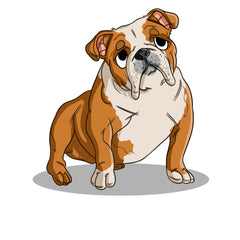The adoration that folks have for their pets is extremely distinct, and the reasons for that adoration are as varied as the quantity of breeds.
Identifying what it is that you adore about dogs is extremely important, particularly when selecting a canine to share your life with.
Are you active and searching for a jogging partner? Do you love to snuggle and cuddle on the sofa? Do you have kids and want a pup that may be their protector and best friend?
Therefore, what are the most popular dog breeds in Texas?
All those are questions that folks ask themselves while picking a dog, and it isn’t any wonder why certain dog breeds are chosen as top tier favorites time and again.
But personal taste is simply one contributing factor as it’ll come to dog choice.
Lifestyle and geography play a huge role in what dog breeds usually live in what places and Texas has a broad variety of dogs.
There are a lot of places to locate information about which dogs usually live where yet the AKC is the authority on canine breeds by region. Here is Innovet Pet Products’ list of top five dogs breeds in Texas.
Golden Retriever

It is simple to see why this family-friendly, loveable dog has made it on our list of most popular dog breeds in Texas.
A Texas dog breed, Golden Retrievers are kind, gentle, and exceptional companions for a family setting.
Their need to be affectionate and obedient makes them an outstanding option for the family pet, and they’re known for being good with visitors and children.
Their excellent retrieving skills and high intelligence make them an excellent Texas dog breeds option for active families.
French Bulldog

Typically called “Frenchies” these cut little dogs are both calculative and curious.
Another popular dog breeds in Texas, French Bulldogs have the reputation of being curious and attentive yet never will turn down the opportunity to sit on someone’s lap.
French Bulldogs are great observers who are always watching for new interactions with humans or other animals.
French Bulldogs are an excellent city dog and the best dogs for Texas, as they don’t require a massive quantity of exercise nor will they need a lot of physical space. Usually, one or two brief daily walks is sufficient to keep a Frenchie in shape.
English Bulldog

The English Bulldog, another popular dog breeds in Texas, comes in at #3 for most popular breeds in Texas.
This medium-sized, stocky muscle machine is all power yet low endurance. Bulldogs only are physical in brief spurts, meaning they only will need a couple of brief walks per day.
Bulldogs are very well behaved and aptly can be described as “big ‘old sweetie pies.” Vastly loyal and dependable, it’s another dog breed whose predictability and affection make it an outstanding family dog.
Mixed Breed

At one time called a “mutt,” you will not find mixed breed upon American Kennel Club’s list of dog breeds, as they aren’t purebred.
However, this classic popular types of dogs and American dog represents an overwhelming quantity of canines registered in Texas according to the Central Texas Animal Hospital.
Mixed breeds often are the description of a dog adopted from a shelter.
The friendly pals are devoted and loving, making for a great household companion. Mixed breeds have become a more sought-after option as a Texas state dog breed when selecting a pet.
Mixed Dog History and Background
Unlike all other most popular house dogs, mutts or mixed dogs don’t have a certain history or background. Every dog is fully unique from the next and may not even share any ancestry with purebred breeds.
There once was a time in history that dog breeders didn’t attempt to interfere with dog populations. Different breeds would mate as they would please and create these mutts that were very different from each other.
These mixed breeds aren’t intentionally bred for any certain reason, nor will they belong to any certain lineage.
Personality of Mixed Dogs
As you might assume, mixed breed dogs have unpredictable personalities. It actually depends upon which breeds they’re mixed with, and what characteristics are the strongest.
Their temperament might vary on their genetic makeup, yet it also can be influenced by their socialization and training as a dog.
While bringing home a mutt, there aren’t any guarantees in knowing what type of personality they might have.
But, with proper care and training, you as the pet parent may have a big effect on the dog’s general behavior later as your loyal companion.
Lab Retriever

The Lab Retriever is America’s most popular types of dogs the past 10 years in a row, and the state of Texas is right on board.
Whether the Labrador’s color is black, chocolate, silver, or golden, the Lab is better described as an active, friendly, and outgoing breed.
These pups are virtually up for whatever and are happy if it includes exercise and their pet parents.
They may be used as hunting or service dogs, yet above all, this dog breed likes to be a people pleaser. Due to this breed’s impressive qualities, it isn’t any wonder this dog breed has the #1 spot in Texas.
Lab Retriever History and Background Information
The Lab Retriever breed—additionally known as Labradors (Lab) or St. John dogs—originated inside Newfoundland, Canada. Within the 18th century, Labradors served as working-class pups for the island’s fisherman.
They were wise enough to ‘retrieve’ unhooked fish, as well as strong enough to swim lengthy distances. However, their use did not stop there, as the lovable pups often were pets which would come home with their pet parents after work.
Despite this, their heritage remains a mystery. Some believe they are a product of the Newfoundland Dog and additional local water dogs other people believe they came from Europe and were later on exported to Canada.
What we know is that the 2nd Earl of Malmesbury—after having the pups shipped to England within the 19th century—was the first one to call them as Labs.
Oddly enough, the Lab—which happens to be the United States most popular dog—nearly went extinct by the end of the nineteenth century.
If not for their survival inside England, there is a possibility that their lineage would have ended over a century ago. The Lab, by the twentieth century, was imported to America from England, and it thrived even among the world wars.
In 1917, the American Kennel Club recognized the dog, and at the end of the century it was number one in the American Kennel Club’s most popular list—which it stays at today.
Labrador Retriever Personality and Temperament
The Lab may just have the best characteristics and temperament of any dog; there is a reason why they have been the number one dog in the United States for so long.
Full of energy and enthusiasm—which stems from a countless reservoir—for life, the canines are big lovers.
They love other dogs, their family, other humans, and virtually everything. They are amazing therapy dogs due to their naturally positive aura.
And on top of that, they are intelligent enough, levelheaded, and very gentle with kids.
Unless poorly trained, they will be extroverted and frequently the center of attention, though they aren’t narcissistic and just love to give love.
They also are eager-to-please, making them susceptible to being trainable, being that they have a desire to do what is right in their pet parent’s eyes.
Note that these canines have a significant bit of energy that’s amplified in their youth and do require lots of time on the pet owner’s behalf.
If kept by themselves for long time periods, they may become destructive, as well as develop separation anxiety.
A few of the other top three most popular dog breeds in America contenders include the Boxer, the Shih Tzu, and the Yorkshire Terrier.
Texas is a large state which provides a number of dog companions of all sizes and backgrounds. There’s an entire world of choices and breeds, and for every person, there’s a perfect canine to match.
Yorkshire Terrier Background and Information
Yorkshire Terrier breeds - or Yorkies - originated in Yorkshire. As England underwent the industrial revolution, individuals from all different areas migrated to Yorkshire for work.
One such group included the Scottish, and they brought along with them a few variants of the Terrier. It is said the Terriers were utilized to hunt rats inside the mills.
But these initial Terriers are said to be almost double the size of the Yorkie breed we know today, and also more prey-oriented, too.
In the midst of the nineteenth century, with all types of Terriers being crossbred, one little fellow named Huddersfield Ben increased in popularity around the show circuits and later was bred to additional Terriers.
Huddersfield Ben was said to be the father of the modern-day Yorkie.
As this breed started shrinking in size, they became more like toy pups instead of utilities for workers.
Then, they were exported to America in the 19th century, in which they instantly gained popularity for being elegant, proper, and posh.
This swift increase in popularity contributed to the American Kennel Club recognizing the canine before it even had a real presence within the states; this happened in 1885.
Yorkshire Terrier Personality and Temperament
One other of the most popular dog breeds in Texas, a Yorkshire Terrier is a lot of canine in a tiny body. They experience little-dog-syndrome, which means they believe they are much larger than they actually are.
A cross between a loving home dog and sassy Terrier, the tiny pups have dynamic personalities. They, in fact, vary to the point that they are one of the very few breeds difficult to generalize.
Some have an arrogant and pompous personality, showing aggression towards other people and jealousy of their pet owner.
Other ones have extremely proud personalities yet are overtly affectionate and need to give love and receive it all at once.
Of course, puppy classes and early socialization vastly diminish the opportunities that they develop a negative temperament and personality, yet these dogs actually are the pick of the litter.
Predominantly having outgoing personality characteristics, the Yorkshire Terrier is both high-energy and social. They often will love to meet other people and stay full of enthusiasm.
Or they will be introverted, aggressive, and grouchy. Some studies will prove the point we are making; the personality of a Yorkshire Terrier isn’t consistent.
Shih Tzu Breed Background and Information
Based on DNA testing, the Shih Tzu is notorious for being among the most ancient dog breeds in the world.
They’re believed to have originated inside Tibet and became popular within China in which they were offered the name Shih Tzu, which means “little dog,” or “little lion.”
The Shih Tzu breed, in China, received a more stylized appearance as the Peking Kennel Club laid out proper breeding guidelines. The Chinese were in awe by the unique Shih Tzu look and personality.
At the end of China’s imperial rule, the canines were brought to Europe, and narrowly avoided becoming extinct.
All modern-day Shih Tzus descend from just 14 dogs and originally were categorized by English kennel clubs as Apsos.
In the year 1935, the original European standard for the dog breed was developed, and they were reclassified as the Shih Tzu. From that point the breed spread all throughout Europe.
Shih Tzu Behavior and Temperament
Shih Tzus are notorious for being alert, well-behaved, and affectionate. They’re also notorious for being lap dogs, as they’re usually sweet tempered and like companionship.
Some pet owners have seen that it takes them a bit longer to pick up basic commands yet that’s just due to a somewhat stubborn streak and may be worked through with a bit of time, consistency, and patience.
Usually relatively quiet canines, Shih Tzus are not notorious for being barkers yet will inform you when they hear a strange sound or if somebody is at the door.
Boxer’s History
Boxers, oftentimes called the ‘Peter Pan’ of breeds—due to their loving rapport and tireless energy—have 3 ancestors. The first is the Bullenbeisser, an extinct hunting canine utilized for big game over several centuries.
Georg Alt, a German man who lived in the 19th century, bred a female with another dog of unknown origin, and that litter borne a sweet cream-white runt called Lechner’s Box.
This was the start of the Boxer breed known today. As you may deduce, the 2nd ancestor remains unknown. But, Lechner Box then was inbred within the litter giving birth to a female dog later called Atl Shecken.
During that time, Alt Shecken’s dog breed was called either a Bierboxer or Modern Bullenbeisser. Then, Alt Schecken was bred to an English Bulldog that paved the way for Flocki, the original Boxer registered within the German Stud Book.
Briefly after in the 19th century, one of Flocki’s sisters were bred to a Leckner’s Box’s grandson, which generated a female called Meta von der Passage; this female is coined as the ‘mother of the modern-day Boxer.’
Therefore, you have the 3 ancestors of the Boxer; a question mark, a Bulldog, and a Bullenbeisser.
A couple of years later, 3 German guys made the decision to iron out and show the breed.
They succeeded. In 1895, in Munich, the original Boxer Club was founded. Within the 20th century, Boxers came to the U.S., in which they were registered by the American Kennel Club in 1904.
The Boxer’s scarcity in the U.S. during the 20th century made them hard-to-come-by and exclusive. During WW1—because of the fact that the breed was enlisted in the United States military—soldiers would come back from their tours with their doggy companions.
The soldier-imported pup contributed to the ‘commercialization’ of Boxers which ultimately led to the presence and popularity of the dog breed today.
Boxer Personality and Temperament
Boxers are a dynamic combination of the hyper-attentive and alert guard dog, and the energetic, patient, and playful dog is ideal for kids.
Even though the Boxer’s temperament widely depends on early socialization, as well as the personalities of their parents, they are by in large friendly and polite to others.
Being that the hunting canine is in their blood, they often are confident and independent.
That exact same blood also contributes to the dog’s aggression as they feel their family is in harm’s way; this phenomenon is witnessed across the majority of breeds with a ‘hunt’ instinct in them.
However, there are very distinct differences between female, as well as male Boxers. Males often are abundantly loving and extroverted, without any care of outgrowing their immaturity until years later.
Females often can be moody, protective, and introverted. It doesn’t make these dogs any less adorable or loyal, but they won’t wear their emotions on their sleeve as frequently as their counterpart.
The general rule with Boxers includes overexposing them early on, which means early socialization is important to better stable temperaments and personalities.
Sources:
Top 10 Dog Breeds in Dallas
The Most Popular Dog Breeds in Every State
Texas Residents Love This Dog Breed The Most
Reveals the Top Dog Breeds in Texas















